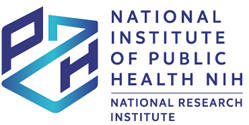Background. Students are a group particularly high risk of adverse effects from such restrictions introduced within counter transmission the SARS-CoV-2 pandemic. Fear felt of contracting the disease and social isolation can lead to consuming excessive amounts of energy with food, resulting in weight gain and eating disorders.
Objective. The aim of the study was analysed selected lifestyle aspects of Polish and Turkish students before and during the COVID-19 pandemic and to determine the existence of differences between the lifestyles of these individuals during the two periods.
Material and methods. The study was conducted at the turn of 2020-2021 among 435 students, including 331 Polish and 104 Turkish students. The research instrument was an original questionnaire created in a Google Forms, consisting of metric and a proper part regarding lifestyle before and during the pandemic. Prior to the actual study, in order to verify whether the research tool is understandable, a pilot study was conducted, which included 40 individuals. The Wilcoxon test was used to examine the differences between the lifestyle of students before and during the pandemic. A value of p<0.05 was considered statistically significant.
Results. Both before and during the pandemic, most Polish students ate 4–5 meals daily (52.9% and 47.7%, respectively), while most Turkish students ate 3 meals (47.1% and 38.5%, respectively). There were statistically significant differences in: duration of sleep (p=0.001), way of spending one’s leisure time (p=0.001) and type of physical activity (p=0.001) among the Polish and Turkish students before and during the pandemic.
Conclusions. The results of this study showed changes in the lifestyle of both Polish and Turkish students during the pandemic compared to the pre-pandemic period. This indicates the need to develop interventions to prevent harmful behaviour and their health consequences in the future.
You can change cookies settings in your browser. Restricted use of cookies in the browser configuration may affect some functionalities of the website.



